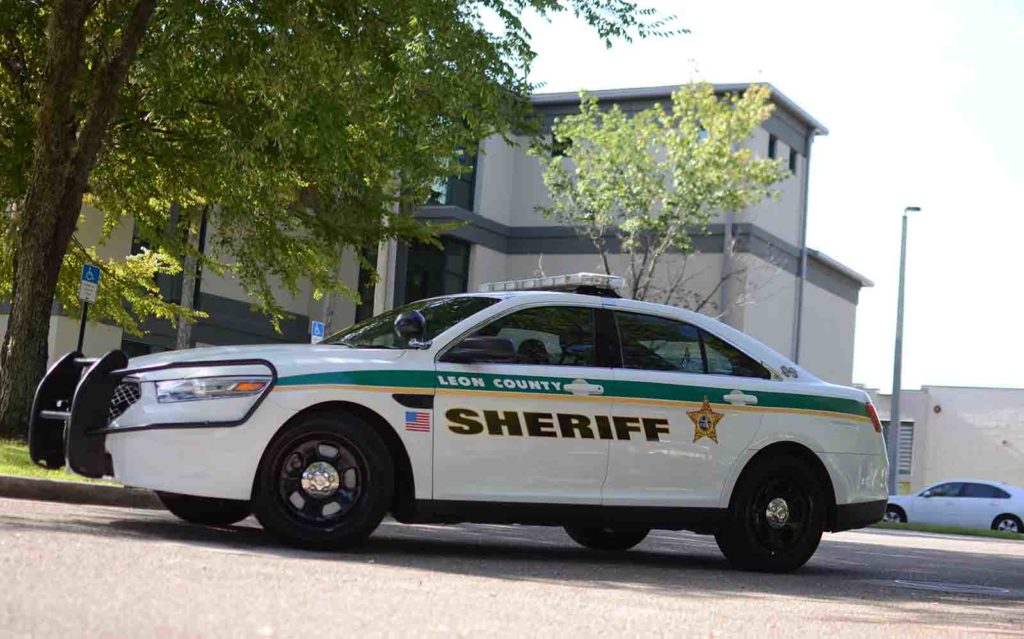The Problem
When members of the Leon County Sheriff’s Office implemented Laserfiche in 2000, their original plan was to use the software for storage purposes and records management for documents such as offense reports, inmate records, legal papers and employee files. However, as Laserfiche’s uses have evolved, so has the agency’s application of the technology to manage documents throughout the sheriff’s office.
The Solution
LCSO has incorporated Laserfiche into multiple aspects of its operation. Streamlining not only records retention associated with the regulatory and law enforcement functions of the office, but also for the management of documents related to their employees, such as personnel files and training records, as well as financial documents, such as purchase orders and payables, and for contract management.
Laserfiche was already in place when IT Analyst Jennifer Heusdens started at LCSO, but she’s instrumental in implementing the software throughout the office. Several years ago, Heusdens used Laserfiche’s Quick Fields application to improve the office’s existing practice of scanning printed reports and storing them in Laserfiche.
“Now, when a report is approved in our Motorola PremierOne records system, it is automatically imported into Laserfiche as a PDF—already indexed in the correct location."
One of the many ways that Laserfiche has empowered LCSO to serve the community better is by allowing deputies to use WebLink, a user-friendly public portal to Laserfiche, to quickly access warrants.
Weblink publishes documents in a searchable Laserfiche repository to an intranet or the Internet in read-only form. When making an arrest, a deputy must verify that the person matches the description and information on the warrant. Before Laserfiche, if a deputy didn’t have a physical copy of the warrant, they would call the dispatch office. The dispatcher would then have to go to the warrants office, look through filing cabinets for the correct warrant and read the information to the deputy. Now, deputies can locate warrants in WebLink instantly using their patrol car computers.
LCSO is also using Laserfiche to streamline the serving of injunctions.
“Before we started using WebLink, if a deputy couldn’t reach someone to serve an injunction, they would put the copy of it in a box for the next shift of patrol deputies to look through,” said Heusdens. “Now, when an injunction is served, a clerk updates the status in Laserfiche, which removes it from an electronic list of outstanding injunctions. Deputies can quickly scan the list and see which injunctions still need to be served.”
Beyond working within the office, LCSO is also making Laserfiche records available to other governmental agencies, including the Department of Children and Families. To ensure that only the appropriate files can be viewed, WebLink allows LCSO to limit the access of any outside agency to avoid violating laws related to privacy, especially legally protected medical records or cases involving the Baker Act.
“We’ve also given the State Attorney’s Office access to Laserfiche,” said Heusdens. “Before we started using WebLink, our records department would have to create a package of all the reports relevant to a case and send it to them. Now, the State Attorney’s Office can use WebLink to find everything that has been imported for a case.”
LCSO maximizes the efficiency, and time-saving Laserfiche offers due in large part to its intuitive and user-friendly interfaces, as well as ongoing assistance from MCCi, the office’s Laserfiche support, and services provider. MCCi helped LCSO set up the office’s initial Laserfiche system and provided back file scanning services for some of the records as needed including medical records, training records, and more. MCCi continues to provide Heusdens and LCSO guidance with further implementation as the office expands their Laserfiche use agency-wide.
Heusdens can keep up-to-date with the latest additions to Laserfiche’s enterprise software through LCSO’s relationship with MCCi as well as her attendance at Laserfiche’s annual user conference, Empower.
“I love going to the Empower conferences,” said Heusdens. “The conference is well done, and I get so many ideas from the presenters and other attendees. I get to see what people are doing with this software and what tools are available, and then I start to think about what I can incorporate into different processes at the sheriff’s office.”
LCSO also has an integration from Banner to Laserfiche to create and file POs and invoices in Laserfiche. The next project includes going the other direction, by using Laserfiche to have Banner kick off the purchase order process.
Since seeing Laserfiche Forms in action at a recent Empower conference, Heusdens has implemented Laserfiche Forms and Workflow as a way for detectives to upload documents and exhibits to their case files in Laserfiche and has created an electronic purchase requisition process. Her bucket list of projects also includes implementing Forms in the creation of travel requests and expense reports as well as deploying electronic personnel forms.
Soon, she’ll even be able to use Laserfiche Forms to complete her request to attend future Empower conferences.






